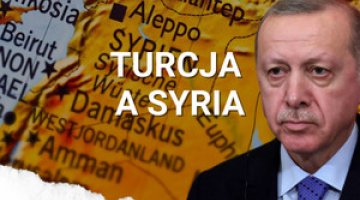The US Secretary of State’s visit to Turkey is overshadowed by scandal
John Kerry visited Turkey on 1 March on his first foreign trip as the US Secretary of State. The key issues discussed were: the Syrian crisis, and co-operation in combating terrorism. The visit was overshadowed by an earlier statement from the Turkish prime minister, Recep Tayyip Erdoğan, who had branded Zionism as a crime against humanity comparable to anti-Semitism, Fascism and Islamophobia.Erdoğan was criticised by the international community for this statement. John Kerry also expressed his disapproval of the Erdoğan’s words during his visit and called upon Turkey to improve its relations with Israel.
Turkish-Israeli relations have been in crisis for several years now due to conflicts of interests in the Middle East, their different stances on the Israeli-Palestinian conflict, and due to the attack made by Israel’s army on ships allegedly carrying humanitarian aid to the Gaza Strip in 2010, as a consequence of which Turkish citizens died.
Commentary
- Turkey’s relations with the USA are based on a strategic alliance which was forged during the Cold War and security issues take the foreground. The alliance has gone through many crises over the past decade: for example, as a consequence of the US invasion in Iraq, the different taken stances on the Iranian nuclear programme or the freezing of Turkish-Israeli relations and related delays in the sale of US arms. Despite the growing number of disagreements – which are mainly a result of Turkish policy becoming increasingly assertive – both countries still attach great significance to their alliance.
- From Washington’s point of view, Turkey is a promoter of democracy in the Muslim world, a regional counterweight to Iran (and its allies) and a dam preventing Islamic radicalism from spilling over, thus contributing to stabilisation in the Middle East. US airbases and NATO installations – including a missile defence system radar – are deployed in Turkey. Turkey was also used as a logistical base during the military operation in Iraq (despite divergent political views) and has been playing the same role during the operation in Afghanistan.
- From Ankara’s viewpoint the vital benefits of the alliance with the US are: NATO security guarantees, support in combating the Kurdish PKK (US unmanned aircraft patrol Iraqi Kurdistan where key PKK bases are located), access to US weapons (most recently including Super Cobra attack helicopters) and political support at international forums (for example, regarding the Syrian crisis). Since 2011, Turkey has been making efforts for Washington to become more strongly engaged in forcing the Bashar Assad regime out. The USA (along with Germany and Holland) has deployed Patriot missile batteries in south-eastern Turkey in 2013. Over the past decade, Turkey has been striving for recognition as an equal partner in its alliance with the USA and for its interests to be taken into account in the US Middle Eastern policy.
- The fact that John Kerry has criticised Turkey for the anti-Israeli statement made by Prime Minister Erdogan shows the limitations the Turkish-Israeli conflict imposes on Ankara’s relations with Washington. While the USA and Turkey will maintain their strategic alliance, the anti-Israeli stance adopted by Turkey will adversely affect its relations with the USA. This will not be limited to statements but will also have repercussions on actual co-operation, especially in the areas where the US Congress, who are sensitive about Israel, has extensive competences. Problems may thus be expected in the sale of US weapons to Turkey (Turkey is planning to purchase Predator drones, F-35 fighter aircraft and air defence system batteries). Furthermore, it has become more likely that the US Congress will recognise the Armenian genocide, which Turkey would see as a severe blow to its prestige.




